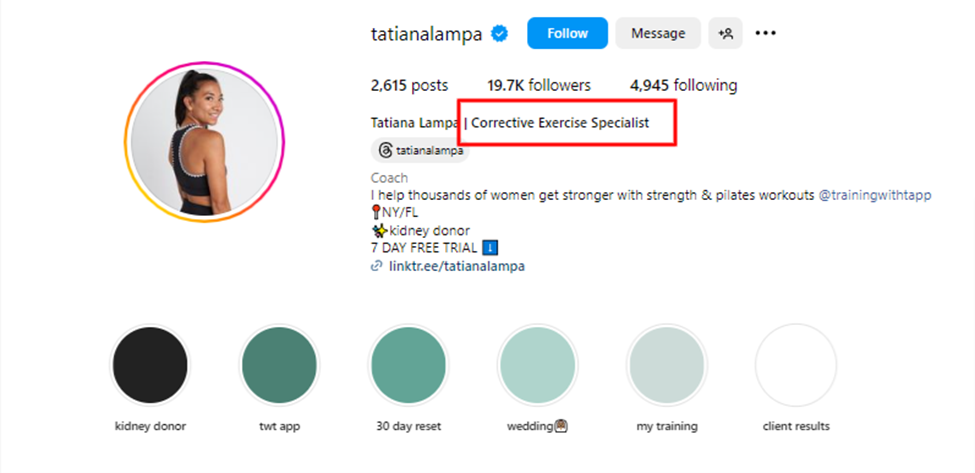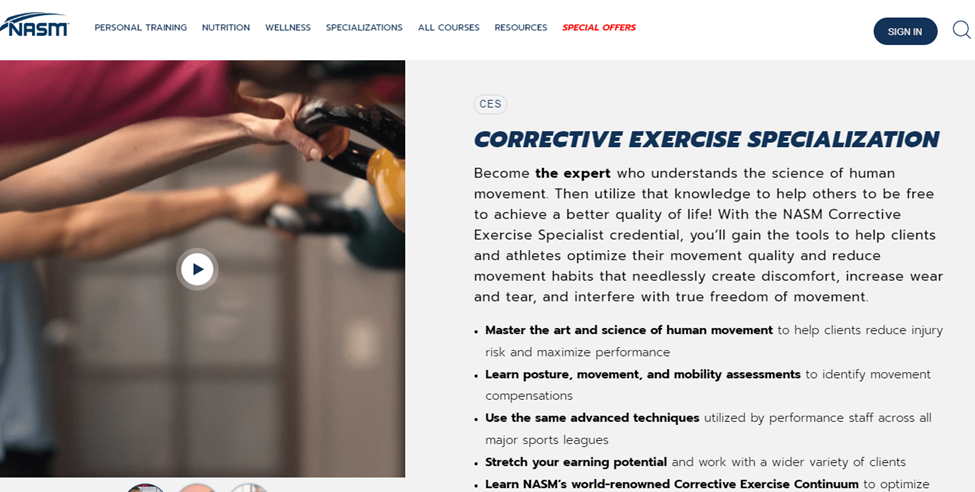Essential Checklist for Starting a Coaching Business
Are you planning to start your coaching business?
Well, you might have picked up a niche, started brainstorming a catchy name, and even visualized your logo. But starting a coaching business is a monumental step and needs a lot of groundwork! From crafting an actionable business plan, pricing the packages right, and figuring out the right promotional channels, it’s a mind-boggling maze!
The only way through this maze is starting a coaching business checklist! This article defines a well-rounded checklist that guides you through the right steps to start your six-figure coaching business.
So, are you ready to unlock your successful coaching business?
What are the Elements for Starting a Coaching Business Checklist?
Given the stiff competition, establishing a successful coaching business could be challenging!
Whether you’re planning to start a life coaching business, or step into sports coaching, there are a few common elements for kickstarting your coaching business.
So, let’s take a look at the comprehensive coaching business checklist:
1. Defining a Profitable Niche
The first thing on our checklist is a well-defined niche! Without a specific niche, you cannot define your target audience, and all the other steps seem out of place!
Your niche should sum up your expertise, experience, and passions! Don’t define a generalized niche and target a massive audience; trying to generalize is a business death! In the book The One Thing, author Gary Keller states that if you aim for extraordinary results, choose one thing and develop your talent and skills.
So, narrow down your niche and target a segment of your audience!
Ensure your niche solves a prevalent problem. This defines your unique value proposition in the market and creates your brand! For example, don’t limit yourself to “I’m a strength training fitness coach”; instead, “I offer HIIT training programs for men over 40.” Thus, you’ll be your niche’s ” go-to-person ” rather than a “jack of all trades.”
Here are a few coaching niches to start your online coaching business:
- Life Coaching – confidence, stress, mindset, identity transformation coaching
- Fitness Coaching – HIIT training, yoga instructor, movement coach, postmenopausal wellness, athletic fitness training
- Relationship Coaching – female and male dating advice, parent-child relationship coaching
- Financial Coaching – money mindset, debt management, financial freedom for women
- Executive Coaching – productivity improvement, team management and motivation
- Career Coaching– career transitions, industry-specific, promotion and high-paying job coaching
2. Gather Relevant Certifications
True, coaching is an unregulated industry! Unlike consulting and therapy, the coaching industry in the US — is devoid of any oversight boards, standard curriculum, or code of ethics. So, almost anyone can become a coach and start a business! However, a few niches, like health and mental coaches, do require certifications to get started!
Although certification is not mandatory in the coaching industry, a certificate can benefit you in many ways. Let’s take a look at these benefits!
- Build your credibility as a coach
- Enhance your skills and knowledge
- Expand your network among other coaches and professionals
- Stay adept with the industry trends and ongoing practices

For example, if you plan to enter into a specific niche (corrective exercise specialist) like Tataiana Lampa, enroll in a Corrective Exercise Specialization from NASM. This would give you credibility to get started as a fitness coach in this niche!

Tip: Get certified by an accredited institute in your niche. This will provide you with enough knowledge and skills to win your audience’s trust.
3. Craft a Killer Business Plan
Now that you’re scrolling through this detailed checklist, you’re absolutely sure to stride into the coaching industry. You might have gathered certifications, dabbled several social media conferences, and tuned into podcasts but failed to discover your inner compass!
That’s when a sound business plan can lead you in the right direction!
Listed below are the crucial elements of a compelling business plan:
- Executive Summary– Business goals, unique value proposition, target clients
- Company Overview – Mission, vision, and values, business structure
- Product/ Service Description – Your different products/ services and pricing
- Business Model – Operation, sales strategy, marketing, growth plan
- Value Proposition – Your product’s unique selling point
- Financial Plan – Financial estimates and budget
- Market Analysis – Market size, trends, competitor analysis
4. Set the Legal Building Blocks of the Business
The last thing you wish to endure as a coach is getting sued! Yes, it’s possible to land in a legal dispute each time you deal with your client. In particular, niches like life coaching are extremely sensitive and can land you in hot water anytime!
Here are the most essential legalities for establishing your coaching business:
-
Business Registration
As a coach, you can run your business as a sole owner or as an LLC (Limited Liability Company). When you run your business as a sole proprietor, you are liable for all the legal obligations of your business.
On the other hand, by setting up an LLC, you protect yourself from personal liability. For example, if your business is sued or declares bankruptcy, your personal assets are protected.
-
Legal Disclaimers
If you own a professional website and sell coaching programs through it, your website must have the following website policies:
- Privacy Policy: Inform visitors how their data will be used.
- Website Disclaimer: Limits the site owner’s liability regarding the information and services provided.
- Terms & Conditions: Legal contracts that people agree to when they purchase a product or a service.
-
Life Coach License
Typically, you don’t need a coaching license to start a coaching business, except if you advise on securities, insurance, or legal. Another scenario where you need a license is when there is a local terminology in the country you plan to practice.
-
Coaching Contract
A coaching contract includes all the guidelines essential for running your coaching business. A good coaching contract covers client-coach details, coaching goals, deliveries, timelines, schedules, payments, etc.
-
Refunds
Include a refund clause in your contract, clearly stating the situations when you offer and don’t offer refunds.
-
Trademarks
If you wish to protect your brand’s logo, program name, or message from infringement, you can register a trademark for your business. This helps you gain exclusive rights to your brand and protect it from legal issues.
5. Fine-Tune Your Brand (Visuals, Messaging, Website and Social Media Presence)
According to ICF’s 2023 study, there are around 109,200 coaches worldwide. Every other day you hear countless narratives of people establishing their staggering million-dollar coaching empire! So, if you aspire to be a coach, how will you stand out in your niche?
Yes, your branding can draw clients to your coaching business. In fact, magnetic brands have a unique set of core values and beliefs that resonate with their audience. Jeff Bezos states, “Your brand is what people say about you when you’re not in the room.”
Simply put, your brand is customers’ overall perception of your business.
So, create a consistent image through all client interactions, including your website, social media profiles, emails, speaking engagements, presentations, and workshops, to showcase your powerful branding!
Here’s what it takes to build a great coaching brand:
- Unique brand identity with core values, beliefs, and purpose,
- A strong brand message
- Captivating visual elements like logo, typography, color scheme, graphics
6. Creating Your Coaching Packages/Services
Coaching offerings are critical to your coaching business and indispensable in this coaching business checklist! Your coaching program is your signature style and unique voice in the industry!
How do you craft a stellar coaching package?
Create your package based on your ideal client story! Rewind the narrative — start from how A(your client) transitioned from the first meeting to showcasing the gradual improvement through each session. Capture the essential highlights or the “aha moments” of your program. This gives a basic framework or essentials of your training program.
Let’s take a look at the key elements to create a training program:
- Outcome or results of the program
- Develop a persona based on your ideal target client
- Structure and delivery method
- Timeline and frequency of your coaching sessions
- Program content or outline (Resources, tools, activities)
An effective strategy is to employ James Clear’s Failure Promortem while planning your coaching program. List the negative experiences and challenges restricting clients from achieving their goals.
7. Pricing Your Packages
While curating an excellent coaching program is essential, an appropriate price defines the long-term success of your coaching business! If you price your package low, you might eat up the profits. On the other hand, overcharging deters clients from enrolling in your training programs.
Hourly rate, value rate, and retainer strategy are the three prominent pricing models you can pitch to your clients.
If you are stuck figuring out your ideal price point, here are the crucial factors to consider:
- Niche & target audience
- Market Trends
- The time you invest in researching and the duration of coaching calls
- Results your clients gain
For example, a practical price point for a three-month package that includes monthly and bi-weekly coaching calls would be $1500.
8. Choose Your Coaching Platform
You have designed the crux of your business: your coaching program. However, whether you are into life coaching, fitness coaching, or business coaching, you need a set of business tools to run your business.
You need tools to conduct coaching sessions, schedule appointments, track their progress, create and sell courses, etc.
Let’s look at the key features essential for an excellent coaching platform:
- Video conferencing & whiteboard tools like Google Meet or Zoom
- Automated Scheduling for easy booking and rescheduling of sessions
- Course-creation and management tools for creating multimedia-rich courses
- Integration with payment tools like Stripe and Paypal
- Marketing features for offering bundles, discounts, email campaigns and sales funnels
- Website creation tools with professional templates and customized branding
- Detailed analytics dashboard for tracking your client’s progress
9. Marketing Strategies for Getting Clients
As a coach, you’re your brand’s face; hence, you must be comfortable marketing yourself! You must increase your credibility, offer value through coaching packages, and build your trust factor!
But before you start marketing, ensure you have a strong niche, the right value proposition and a signature offering. This sets a foundation to build a stellar marketing strategy!
There are countless ways to market yourself as a coach; we list out the crucial ones:
- Leverage your personal and professional network
- Promote your business on the proper social media channels
- Set up an email list, drive in leads and forge deeper relationships with clients
- Be a part of niche-related Facebook groups and build your network
- Start your podcasts discussing industry-related trends and advice, or make guest appearances on your niche-specific podcasts
- Create lead magnets such as guides, templates, and worksheets that offer valuable content and engage clients
- Optimize your website traffic with relevant target keywords, meta titles and descriptions, backlinks
Most importantly, prioritize feedback loops and scale your business with your clients! This is essential to keep your momentum going!
The Final Thoughts
Becoming an online coach is a rewarding yet challenging pursuit. Hopefully, this definitive starting a coaching business checklist guides you in this empowering pursuit! We have covered everything from determining your niche to discovering the perfect marketing strategy!
Suppose you are looking for a powerful solution to build a coaching community marketplace; launch your business with a ready-made script like Pinlearn! It has all the essential aspects — a live streaming feature for 1:1 and group coaching calls, course management, an integrated payment gateway, a dedicated coach and admin dashboard.
So, are you ready to launch your coaching business today?
FAQs-Related to Starting a Coaching Business Checklist
1. What do I need to start a coaching business?
To start a coaching business, you need a lucrative niche, a solid business plan, an effective coaching program, a stellar marketing strategy and a growth mindset.
2. How do I structure my coaching business?
A well-structured coaching business must start with an initial assessment, well-mapped goals, plans & activities, key resources, and a detailed session plan.
3. How do I prepare a coaching package?
To prepare a coaching package, identify your niche, determine the program frequency and duration, determine the delivery method and outline the structure.





